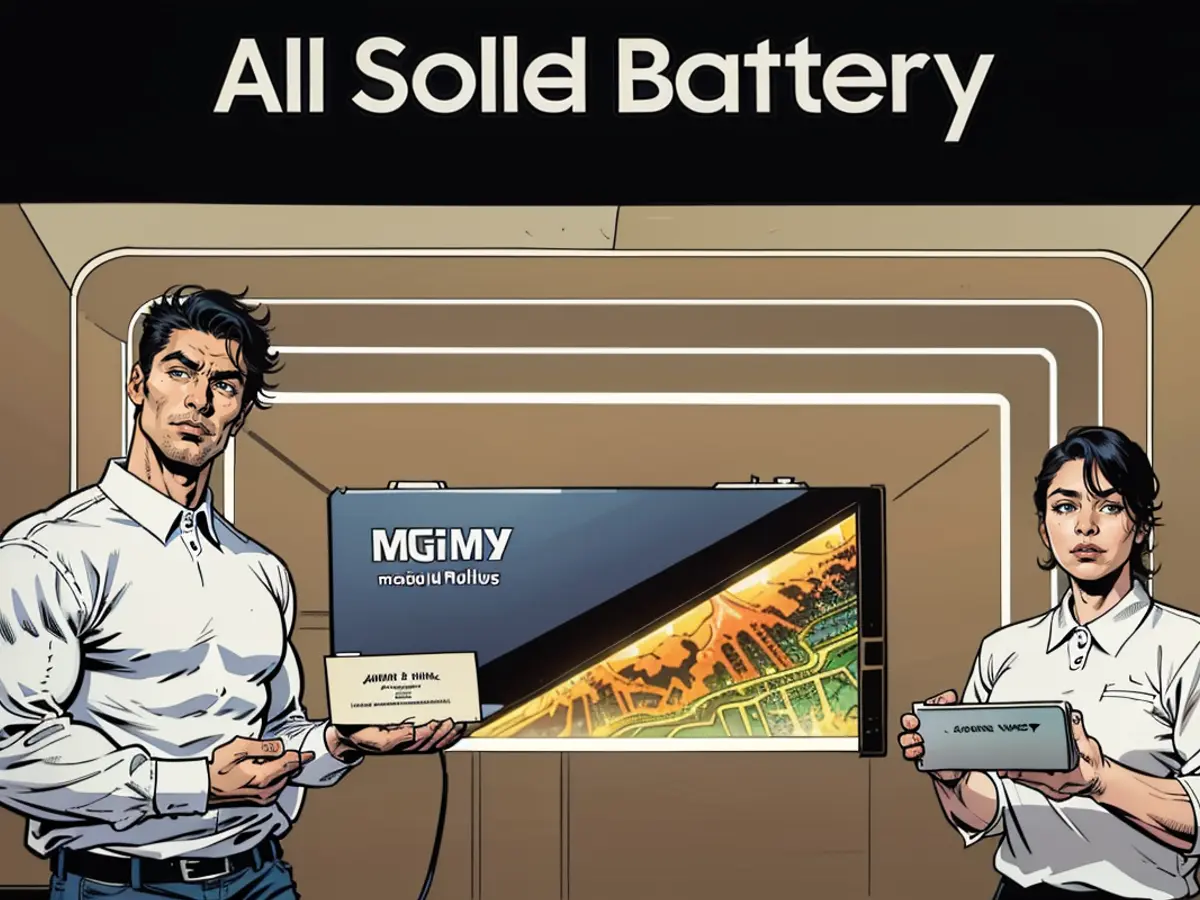Super battery for electric cars to be ready for production soon
Samsung announces mass production of a solid-state battery that could give electric vehicles a boost. The battery is expected to last 20 years, enable ranges of over 900 kilometers, and charge in just nine minutes. Meanwhile, Germany risks falling behind in battery research.
Short ranges, long charging times, and insufficient battery lifespan currently hinder electric vehicles. However, they could soon accelerate with innovative solid-state batteries that address these issues. Samsung announced at the SNE Battery Day 2024 conference that it plans to start mass production of such batteries by 2027. A pilot production line is already underway, with initial tests by electric vehicle manufacturers, according to "Interesting Engineering."
Up to 965 kilometers range
The solid-state battery is expected to enable a range of up to 965 kilometers and a lifespan of 20 years. It can charge from 8 to 80 percent in just nine minutes, a "unprecedented feature," according to Samsung. This rapid charging time is possible due to optimization of the lithium-ion transmission path and low resistance, the company explains.
Why not charge up to 100 percent? Deep discharges to 0 percent and fast charging above 80 percent can damage batteries. In these ranges, batteries absorb energy much slower. Some smartphone manufacturers allow users to set a maximum charge percentage to preserve battery life.
The new battery has a prismatic form factor, meaning it's rectangular and flat. Unlike traditional batteries, its terminals are located on the sides, rather than the top, to improve energy efficiency and cooling performance.
No anodes
Samsung also employs a Cell-to-Pack (CTP) architecture, integrating cells directly into the battery pack instead of using modules. Additionally, the new battery has no anodes. Typically, anodes store ions while the battery is charging, with ions flowing from the anode through an electrolyte to the cathode (current collector) during operation.
A study published in Nature Energy by researchers at the University of Chicago recently described how an anode-free battery can function. Their concept involves storing ions directly on the collector through an electrochemical deposition of an alkali metal.
High energy density, but safe
Overall, the number of components is reduced by 35 percent, and weight is reduced by 20 percent compared to traditional designs. This results in an energy density of 500 watt-hours per kilogram (Wh/kg), around 40 percent higher than current Samsung electric vehicle batteries.
In a solid-state battery, a solid electrolyte is used instead of a liquid one. Samsung uses an oxide, with alternatives including polymers, organic electrolytes, and sulfides or thiophosphates. These batteries offer higher energy densities, faster charging times, and improved safety, with a significantly lower risk of fire.
Still too expensive for most
It's no surprise that automakers want to use batteries with these features in their vehicles as soon as possible. However, Samsung's solid-state battery is still very expensive to produce, so it will initially be used in the "super-premium" segment.
To prepare for mass production, Samsung has built a pilot plant that is already producing small batches. Initial samples have been sent to automakers for testing, with positive feedback reported by Samsung.
Samsung faces competition
Samsung is not the only company planning mass production of solid-state batteries. Toyota, in partnership with energy company Idemitsu Kosan, is also aiming to start production in 2027.
According to "Notebookcheck", Japanese manufacturers are also struggling with high production costs, so their solid-state battery will initially be used in luxury vehicles of the Lexus brand. Nissan is also involved, with the Japanese corporation planning to launch its first electric vehicle with a self-developed solid-state battery in 2028. CATL, the world's largest supplier of electric vehicle batteries, has been researching solid-state batteries for over a decade with over 1000 employees. Initially, CATL planned to start mass production in 2030, but now the Chinese company wants to produce at least a small batch in 2027.
German automakers are also cooperating. VW manager Frank Blome, responsible for this area, even speaks of an "endgame" in battery technology that every company wants to win, according to ADAC. VW wants to start a pilot plant in 2025 and has partnered with US startup QuantumScape. Mercedes-Benz is cooperating with the Taiwanese company ProLogium and also with US company Factorial Energy. Ford and BMW are trying their luck with US solid-state cell specialist Solid Power.
Know-how can be bought, but it's best to develop it yourself, which is why research is essential for the German industry - not just for car manufacturers. In a joint statement, associations KLiB, VCI, VDMA, and ZVEI cite a study by market researcher Frost & Sullivan, which states that batteries are the most important technology of the 21st century.
However, the German government has significantly reduced funding for battery research. According to the Competence Network for Lithium-Ion Batteries (KLiB), Research Minister Bettina Stark-Watzinger (FDP) has only allowed the continuation of existing projects this year. For 2025, she has reduced the planned funds from 155 to 14 million euros. Due to the key role of technology in the energy transition, this would have "dramatic consequences for the high-tech location Germany," according to an open letter from leading scientists and companies in the industry to the federal government.
Pre-competitive research funding is the basis for researching new strategic battery topics such as solid-state batteries and sodium-ion batteries, the industry associations write in their statement. It allows for the examination and evaluation of technological trends and the exploration of new research fields. Without this research, a strong position for Germany in the strategically important field of batteries is not feasible.
The innovative solid-state battery technology developed by Samsung could significantly impact Germany's energy policy, as the country risks falling behind in battery research due to high production costs. The potential of Samsung's battery, capable of long ranges and rapid charging, could encourage German automakers to invest in this technology and secure a competitive edge.








